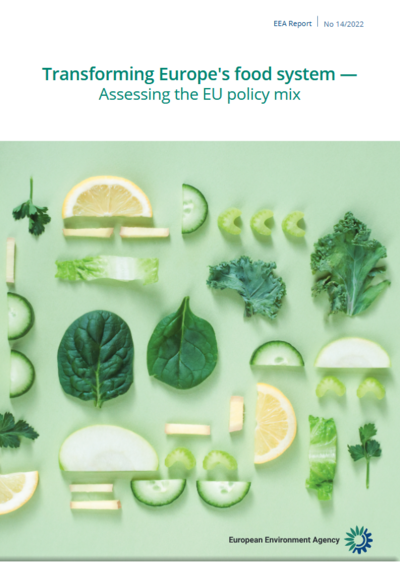Transforming Europe’s food system Assessing the EU policy mix
Food systems in Europe and across the world are currently unsustainable. Globally, they account for almost one-third of GHG emissions, drive biodiversity loss and harmful health impacts, and fail to ensure fair economic returns and livelihoods for all actors. Recognising the scale of change needed, in 2020 the EU adopted the ‘Farm to Fork’ (F2F) strategy, with the goal of enabling and accelerating ‘the transition to a fair, healthy and environmentally-friendly food system’.
While the need to transform Europe's food system is clearly acknowledged in both research and EU policy, the challenges are equally obvious. Europe's food system is hugely complex and interwoven with its societies, economies, cultures and landscapes. Such interdependencies create diverse barriers and resistance to change, which are often magnified by the influence of powerful vested interests. During the last two decades a growing body of research into 'sustainability transitions' has emerged, providing insights into how societies can overcome these barriers and achieve far-reaching systemic change.
According to such research, sustainability transitions occur through a twin process, combining the emergence and spread of innovative new ways of meeting societal needs (e.g. technologies, social practices, business models) and the disruption and phasing out of established modes of producing and consuming. Based on this conceptual background, the report analyses the ‘Farm to Fork’ policy mix as well as the common agricultural and fisheries policies, which have an important effect on the European food system.
The report finds that, despite the advances achieved under the EU’s ‘Farm to Fork’ strategy, the existing EU policy mix is characterised by gaps and inconsistencies that limit the potential to achieve transformative change. But it also points to many ways to address these limitations – for example by engaging a broader range of actors as innovators, providing stronger support for upscaling of sustainable practices, promoting changes in behaviours and norms more effectively, navigating resistance from interest groups and engaging society in articulating shared visions for a sustainable food system.
The report identifies many opportunities to make EU policies more transformative. Fully realising their potential will require a strategic and coherent approach.



